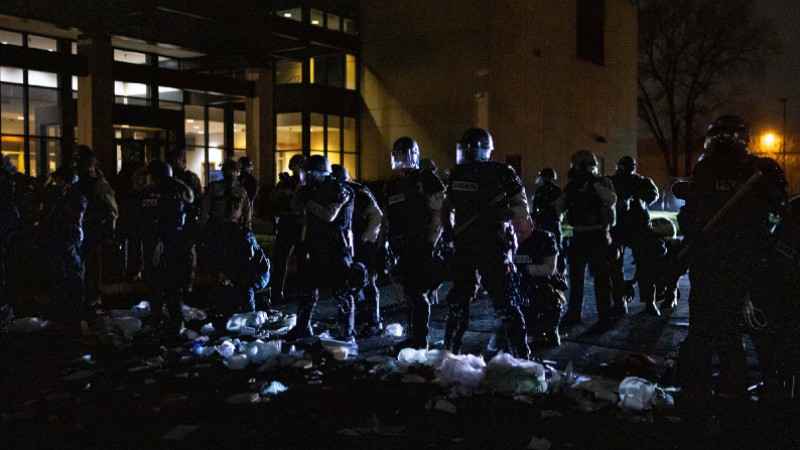State police regulatory board proposes standards for policing protests, ban on officers joining extremist groups
The Minnesota Police Officer Standards and Training (POST) Board has moved two proposals that would prohibit officers from affiliating with extremist organizations and create uniform standards for how police respond to protests, according to Gov. Tim Walz’s office.
The announcement comes after the killing of Daunte Wright in Brooklyn Center by former officer Kim Potter, as well as the verdict in the trial of Derek Chauvin, the former police officer found guilty of murder and manslaughter in the death of George Floyd.
Walz sent a letter to the regulatory board Thursday calling for the proposals.
"Minnesota faces a moment of reckoning, where the interests and needs of many converge," Walz said in a letter to the POST Board Thursday. "The watershed events of the last year make it clear that communities of color cannot go on like this. Police officers also cannot go on like this. While we hope for change, history tells us that hope is not a strategy. The urgency and need for systemic reforms has never been greater."
Law enforcement in Minnesota has come under some scrutiny after its response to protests following the deaths of Wright and Floyd.

Authorities respond to a scene in front of the Brooklyn Center Police station on Sunday, April 11, 2021, in Brooklyn Center, Minn. The family of Daunte Wright, 20, told a crowd that he was shot by police Sunday before getting back into his car and driving away, then crashing the vehicle several blocks away. The family said Wright was later pronounced dead.[AP Photo/Christian Monterrosa]
During the demonstrations protesting the death of Wright, a temporary restraining order had to be issued by a federal judge prohibiting law enforcement from arresting or using force against members of the press covering the protests.
The use of less-lethal force — such as chemical irritants and rubber bullets — against protesters has also been questioned.
Last week, the Minneapolis City Council voted to oppose the use of tear gas and other munitions in response to protests in the city.
"I urge you to reflect the public’s call for a more uniform system that establishes sound practices and accountability for law enforcement response to demonstrations," Walz said in a letter to the board.
When speaking about the need to ban officer’s involvement in extremist organizations, Walz said extremism is "at odds with law enforcement professionals’ basic responsibility to protect and serve everyone," and that having a policy would "further build trust."
Walz also cited the Jan. 6 insurrection at the U.S. Capitol when discussing the issue.